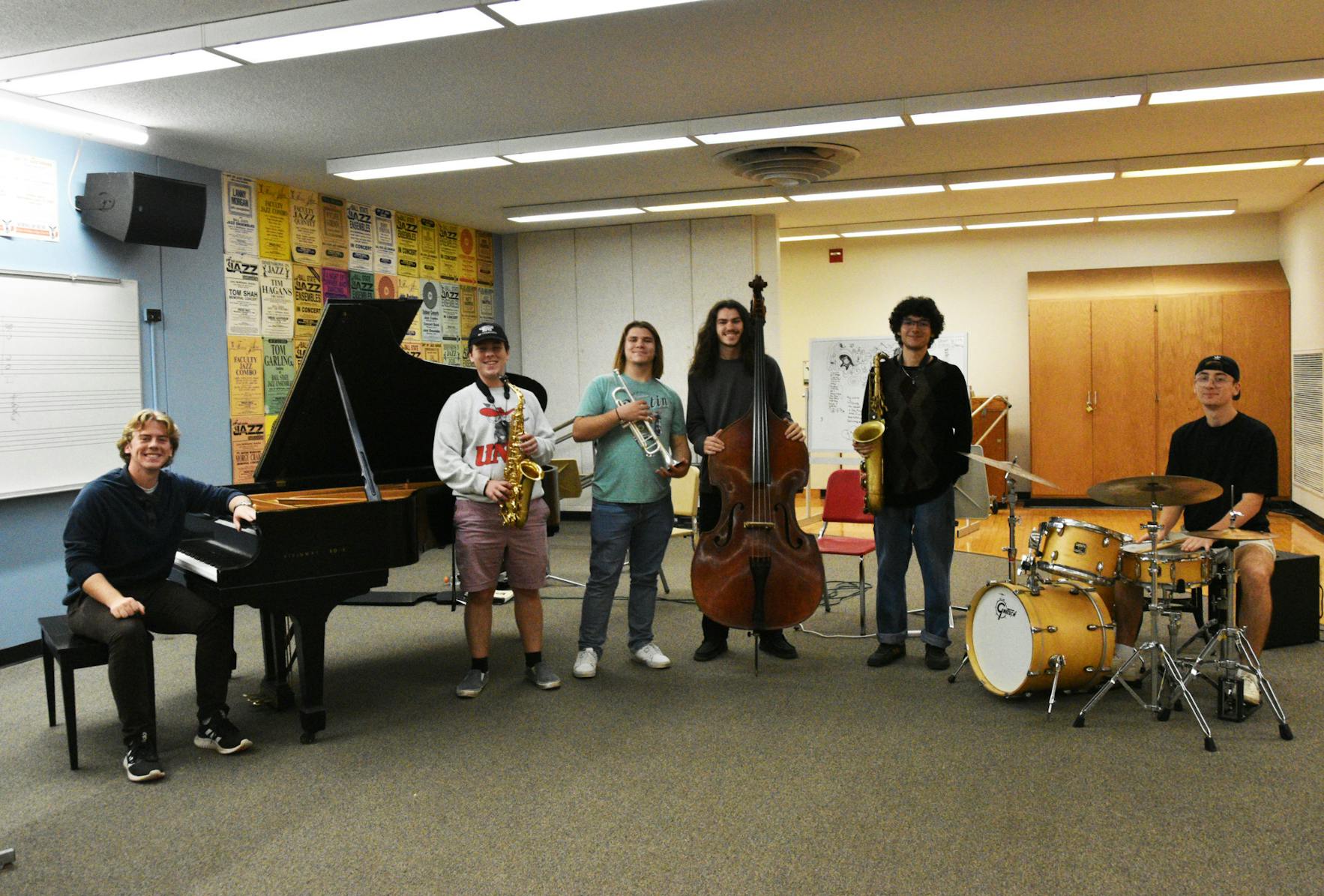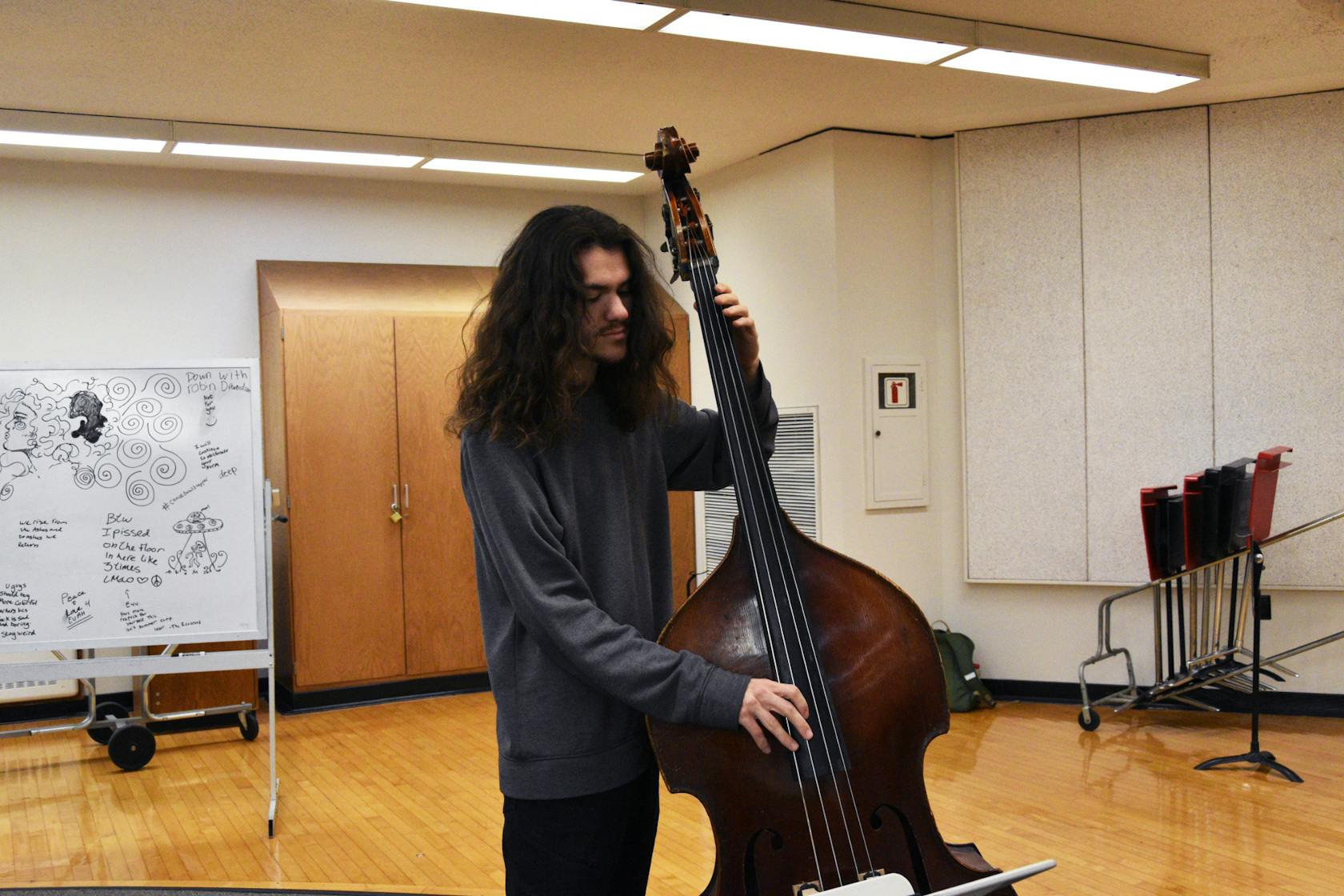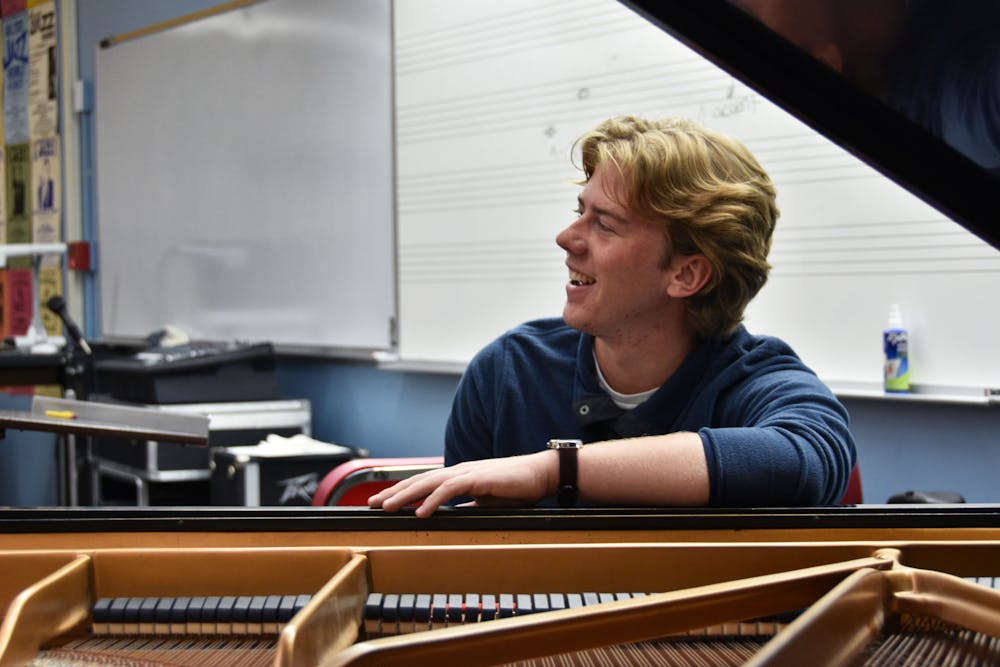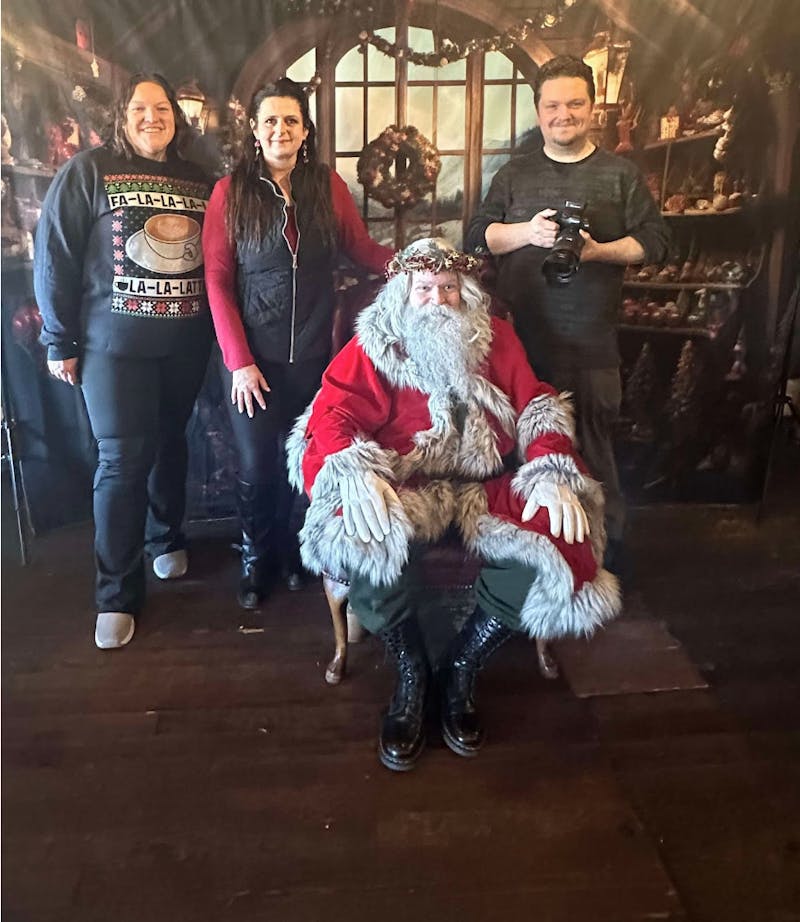Having six people come together for one common goal is rare enough. Having it happen by accident seems like a one-in-a-million event. However, that was exactly the case for the Mocal Grifters.
Those who were there that night can testify to that fact. It happened after a long day of marching band camp, two weeks before classes started in August. One evening, in Ball State University’s Schmidt-Wilson Residence Hall, where the marchers resided during camp, a few of the musicians were blowing off steam.
Slowly, a group started to form. Each night of their program, it progressed further. They all shared one common interest: jazz music.
Every time they met, they invited different people to play with them, and each new addition brought a different instrument, even a didgeridoo. The idea was born from there: every week, this new group of friends would meet to play their favorite music and invite anyone on campus to join them.
The Mocal Grifters are made up of second-year music performance major Kyle Books on the drums, second-year psychology major George Trajanoski on the tenor saxophone, second-year jazz studies major Griffin McAtee on the alto saxophone, second-year music education major Jason Frosch on the trumpet, first-year jazz studies major Nick Engle on the piano and second-year music education major Evan Parent on the upright bass. McAtee, who organizes the “jam sessions” and the house band’s practices, is the group’s leader.
“It’s a big group effort, I couldn’t do it without all of these guys,” McAtee said. “It’s a big collaborative effort.”
Originally, this group tried to start these sessions last year, but they didn’t take off. The band members said they lacked a pianist to round out their sound. However, that all changed this year when Engle came along.
Now, they’re going strong, performing almost every weekend in the Schmidt-Wilson lobby and picking up their new band name. The place for the performances was not accidental; they chose the dorm’s lobby specifically.
“The fine arts dorm brings in a lot of people, so a lot of them haven’t gotten any jazz practice or experience,” Frosch said. “They don’t understand the joys of playing that kind of music.”

The “Mocal Grifter” jazz band poses for a group photo Oct. 26 in the Hargreaves Music Building. They rehearse on Thursdays and you can sometimes find them performing in the Schmidt-Wilson lobby.
The Schmidt-Wilson lobby furthers the band’s goals when it comes to performing these sessions. These goals include giving new musicians a safe place to play, one that is an “under 21” space to have a “real” jazz jam session. Additionally, their goal is to expose new people to jazz and make music with new students to develop their own skills and to just have fun.
When it comes to developing their own skills, each has their own main focus. For Engle, it’s learning how to be a good soloist. Parent works on communicating with his band mid-song, nonverbally. Frosch’s focus is on self-confidence when it comes to performing.
McAtee is working on playing music that is not just fun to play but is fun to listen to. Trajanoski is discovering traits he has that impede his progress as a musician and working to fix them.
Already, they’ve all seen improvements in listening to each other as they play with one cohesive sound.
The night usually starts with the band playing three of the songs from their repertoire, and then McAtee calls on one of the “outside” musicians to join them on stage. This new musician “calls a tune,” which means they announce which song they want to play, and the band joins in.
“Each new person adds a different twist to the night,” Trajanoski said.
If you’re wondering why this style of music is significant, the band has an answer based on what it means to them: jazz is mainly about collaboration with other musicians. The genre is also about evoking emotions there are no words for.
“I can’t make you feel anything with my words unless I’m a really good orator, but I can make you feel something with music if I know what I’m doing,” Trajanoski said.
It relies heavily on the connection one has with their band and the ability to be vulnerable with their audience. Self-expression is a huge part of it as well.
“When you play, it’s bearing out what’s in your soul at that moment. It’s also telling the story of you and your instrument,” McAtee explained. “If you sound really good, you can tell ‘this guy has a history.’ It’s almost like a romance.”

It sounds simple, but for some people, it might actually appear daunting. If that’s what you’re thinking, don’t worry. The Mocal Grifters have a few tips for you:
- Be calm. This doesn’t just mean to control your nerves, but it also means not to get too excited over playing. You can’t play well if you’re not relaxed. You must stay in control. This does mean, however, that you need to be confident in yourself. The same thing is true with this, too –don’t get too cocky. As Trajanoski puts it, “You gotta know what you don’t know.”
- Playing alone is different than playing in front of an audience. You may feel like you won’t get scared, but it’s very normal to be a little afraid. That’s OK.
- If you fail, that’s perfectly fine, you just have to keep getting back up.
- Practice, practice and practice some more.
- If you’re not sure where to start, come to a session and listen to the other soloists play. Really try to follow along and get inspired by your peers.
- Come prepared with a piece you feel comfortable with. If you don’t, you’re setting yourself up to feel your nerves kick in, which will increase your chances of messing up.
- If you’re still scared, the band invites you to come talk to them. They always want to introduce people to jazz.
You can occasionally find them in the Schmidt-Wilson lobby around 7:30 on Friday nights, and the band posts about their sessions on Instagram @mocalgrifters. If you find yourself craving some authentic jazz music without leaving campus, you know exactly where to go.
Contact Arianna Lessner with comments at arianna.lessner@bsu.edu.





The Daily News welcomes thoughtful discussion on all of our stories, but please keep comments civil and on-topic. Read our full guidelines here.